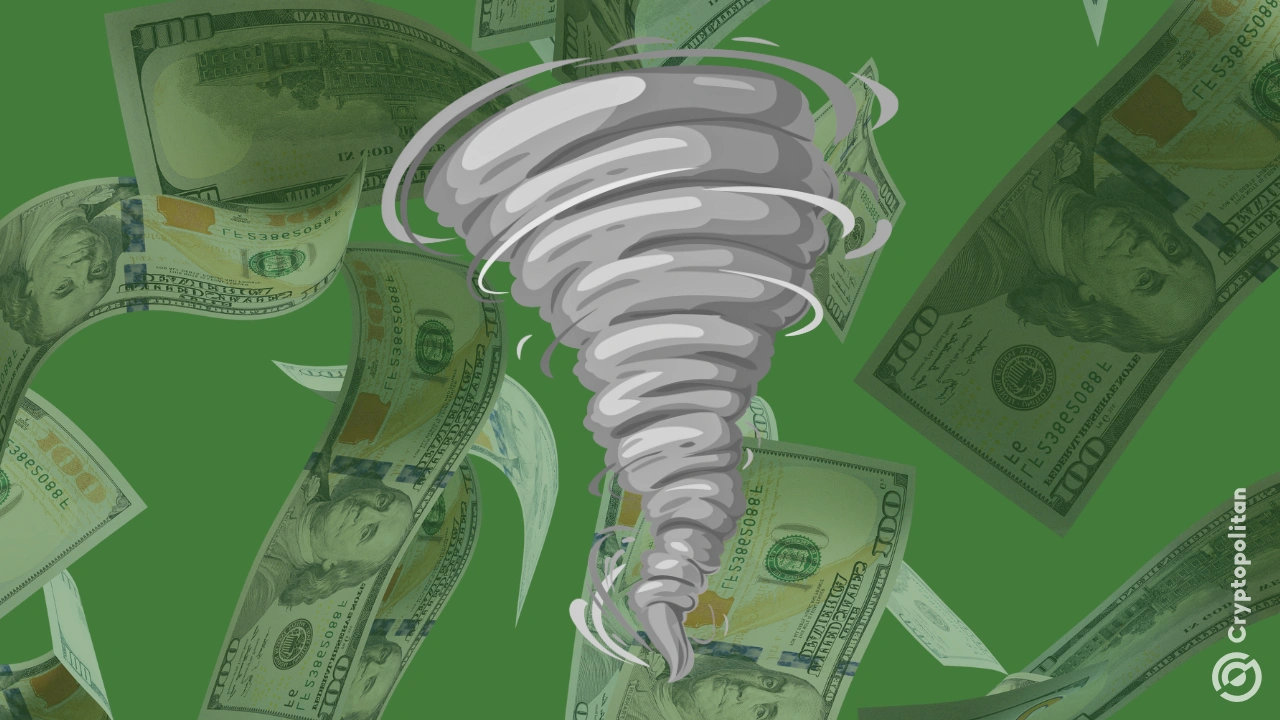Source: First Financial
According to CCTV News, the United States' high tariff barriers are causing multiple economic crises. Federal Reserve directors warned on the 24th that if the Trump administration maintains radical tariff policies, the wave of layoffs in corporate employees may cause a surge in unemployment rates, and it is not ruled out that interest rate cuts should be taken to respond. At the same time, rising prices have intensified debt pressure on the American people, and local small and micro industries such as flower shops have also suffered a shock.
On the 24th, the president of the International Monetary Fund called on all countries to resolve trade disputes as soon as possible to avoid the spread of systemic risks.
U.S. officials warn: High tariffs may cause unemployment to soar
On April 24, local time, Federal Reserve Director Christopher Waller warned that the trade war triggered by U.S. President Trump may soon lead to an increase in unemployment.
It is reported that the current employment situation in the United States is at risk because other countries impose retaliatory tariffs on US goods. Waller said if tariffs remain in place, there will be no significant impact on the U.S. economy by July. Businesses could start layoffs if the Trump administration resumes radical tariff levels, and he would support rate cuts if unemployment rose sharply.
Waller stressed that he expects more rate cuts soon if the labor market deteriorates seriously.
Tariff barriers are high, American people are under pressure
Debt problems are insulting
Currently, the surge in credit card debt has put many Americans in financial difficulties that are hard to escape. As the United States launches a tariff war on the world, rising prices will further intensify the pressure on people to repay debts.
According to the credit card report released by US Yinsu.com in April this year, in November last year, 48% of American people holding credit cards were unable to pay off their debts during the current payment period and needed to postpone repayment. This figure was 44% in January last year.
Among the Americans who are unable to pay off their credit card debts in the current period, 53% have been in debt for more than a year.
Data from the Federal Reserve Bank of New York showed that as of the end of last year, the total U.S. credit card debt hit a record high, reaching an astonishing $1.21 trillion, a 4% increase from the previous year. On average, each U.S. household has about $6,600 in credit card debt.
Ted Rossman, senior industry analyst at US Silver Rate Network: If you repay the minimum repayment at an average rate of about 20%, you will be in debt for 18 years and you will have to pay nearly $10,000 in interest.
Driven by high consumption culture, many Americans have gradually entered the debt trap. They are carrying huge debts and even have to make a living by "supporting debts with debts". Many American experts are worried that the US government's tariff policy will lead to rising prices, which may make Americans' debt problems worse, and more and more Americans' debts will be out of control.
Ted Rossman, senior industry analyst at US SilverRoad.com, said that people's income is being squeezed by various expenses such as housing costs, medical care, food, and parenting, and the room for disposal is getting smaller and smaller.
Rod Griffin, an expert at financial consulting firm EBR Group: Out of control refers to debt that affects you to pay basic necessities for daily life. For example, you have debts that will make you unable to pay for food or daily bills, or you can only pay one of them; there are people who can repay the loan, but they only pay the minimum amount. This will lead to their continued increase in debt and fall into a deeper and deeper debt vortex.
The owner of the flower shop is worried
According to CBS, in the United States, 80% of flowers rely on imports. The US government's abuse of tariffs is impacting the U.S. flower industry, and many flower shop owners are worried that they and consumers will have to bear higher costs.
Flower wholesaler Andy Arthur said their flowers are from Ecuador, Colombia, Canada, Thailand and the Netherlands. Pereira, the florist manager, said that (imported flowers) are mainly from South America. For example, Colombia and Ecuador.
Many flower shop owners said that the flowers sold in the store have been affected by tariff policies and the prices of flowers are rising.
Under the impact of tariffs, many flower practitioners are in a dilemma. On the one hand, the increased cost of tariffs puts them under great pressure. On the other hand, they are worried that customers will lose their customers by simply increasing the selling price. Some flower practitioners are looking for ways to minimize losses.
The global economy is facing a new major test
South Korean workers worry about their livelihoods
Hyundai Motor Group is South Korea's largest auto exporter to the United States. On March 24, two days before the United States announced an additional 25% tariff on imported cars, executives of Hyundai Motor Group visited the White House and announced that they would invest $21 billion in the United States in the next four years, including its Hyundai Iron & Steel Company invested $5.8 billion to build a new factory in Louisiana to supply steel to its auto plants in Alabama and Georgia.
News of huge investments in the United States has exacerbated concerns among employees of Hyundai Iron Manufacturing Company. In Incheon, South Korea, a factory of a modern ironmaking company has been shut down.
Kang Duxun has worked in the Incheon factory of Hyundai Ironmaking for 15 years. The company recently stated that the factory will be shut down for one month and will start the voluntary resignation process to dismiss employees.
Jiang Duxun, an employee of Hyundai Iron Manufacturing Company: In the past, we often stopped work for three or four days and then resumed production. But this time, everyone was very anxious.
In recent years, modern ironmaking companies have suffered multiple blows such as the sluggish domestic construction market, competition for foreign steel products and trade union strikes. Last month, the US policy of imposing a 25% tariff on imported steel and aluminum products came into effect, further affecting South Korea's steel exports to the United States, making the business environment of Hyundai Iron Manufacturing Company worsen. Hyundai Iron Manufacturing Company had to declare an "emergency management" state, taking a series of measures such as reducing executive salaries, implementing employee voluntary retirement plans and reducing the operating scale of some factories to save costs.
Under such circumstances, Hyundai's announcement of investment plans in the United States has made workers in South Korea unhappy. Investors are also skeptical of Hyundai Motor Group's investment plan.
They questioned whether investment in the United States would allow Hyundai to obtain tariff exemptions, how this overseas investment would be financed, and whether Hyundai could ensure that there were enough customers to digest overseas production capacity. Analysts warn that the huge U.S. investment could further increase financial pressure on Hyundai Ironmaking.
Hyundai Iron & Steel has fallen 22% since the announcement of its investment plan in the United States. During the same period, Hyundai Motor Group's share price also fell 12%.
Canada says it will fight against U.S. tariffs
On April 24 local time, Canadian Finance Minister Shang Pengfei said at a press conference of the G7 Finance Ministers' Meeting held in Washington, USA that Canada needs to fight against US tariffs, and US tariff policies have affected a large number of Canadian goods. In addition, U.S. tariffs will also trigger inflation and affect global economic growth.
Shang Pengfei said the G7 is still united, but there are tensions between them around the issue of US tariffs. He also said that he had recently interacted with U.S. Treasury Secretary Becente and will release more details of trade negotiations with the United States after the Canadian federal election.
IMF President calls on countries to resolve trade disputes as soon as possible
International Monetary Fund (IMF) President Georgieva said on the 24th that the shift in major trade policies has led to a sharp increase in uncertainty and the global economy is facing new major tests. She called on countries to carry out constructive cooperation to resolve trade disputes as soon as possible, keep markets open and eliminate uncertainty.
















No comments yet